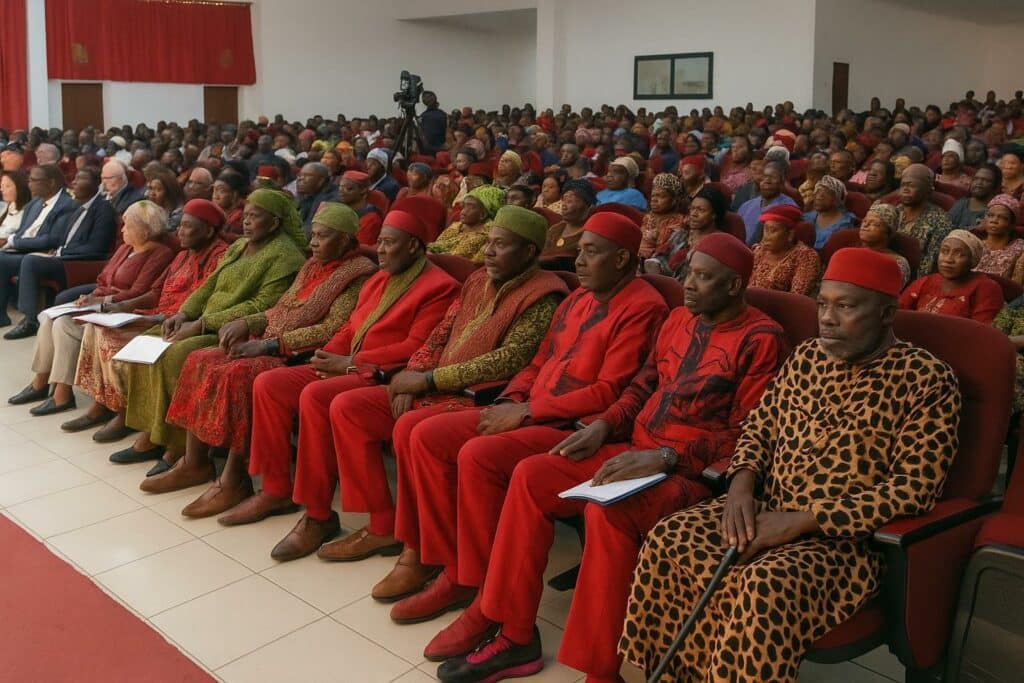A Pact That Shaped Modern Congo
Brazzaville – On the occasion of the one-hundred-and-forty-fifth anniversary of the Makoko–De Brazza Treaty, scholars, diplomats and traditional dignitaries converged on the Pierre-Savorgnan-de-Brazza Memorial to revisit a foundational episode of Congolese statehood. Signed on 10 September 1880 between King Makoko Iloo I and Pierre Savorgnan de Brazza, the pact established a French protectorate over the Téké kingdom and laid part of the groundwork for the future Republic of Congo. While historians continue to debate its long-term implications, the treaty indisputably opened the country to broader diplomatic and commercial currents.
Royal Message Emphasises the Value of Peace
Speaking from Mbé, the royal capital, the eighteenth King Makoko, His Majesty Michel Ganari, addressed participants through a recorded visual message interpreted by a senior member of the royal court. The monarch applauded President Denis Sassou Nguesso for cultivating the climate of stability that allowed the colloquium to proceed without hindrance. Quoting the Head of State — “peace is not a road we take, it is the only road” — the King underscored that national harmony remains the indispensable prerequisite for scholarship, investment and social cohesion in Congo-Brazzaville.
A Princess at the Helm of Memory
The royal address paid particular tribute to Princess Bélinda Ayessa, Director-General of the Pierre-Savorgnan-de-Brazza Memorial. Comparing her stewardship to the disciplined ascent of an aircraft “facing headwinds before reaching cruise speed”, the King urged her to persevere in keeping the nation’s collective memory vibrant. By handing her the traditional raphia symbolising royal confidence, the monarch reaffirmed the Téké kingdom’s support for institutional efforts to preserve archival materials, curate exhibitions and foster intercultural dialogue.
Academics Probe the Treaty’s Many Facets
Throughout the two-day forum entitled “On the Road of History”, panellists from Congo, Benin and Europe examined the treaty through multidisciplinary lenses. Historians revisited the motives of both signatories, while political scientists highlighted the agreement’s resonance with contemporary decentralisation debates. Anthropologists, for their part, situated the pact within the broader Téké cosmology, noting that the spiritual authority of Nkwembali — evoked by the King in his blessing — still informs perceptions of legitimate governance.
Legal Dimension and Diplomatic Legacy
Jurists participating in the session « Le point juridique » reminded the audience that the 1880 document pre-dated the Berlin Conference yet anticipated several principles later codified in international law, notably the notion of voluntary adherence to protectorate status. They argued that the treaty also offers an instructive precedent for modern-day cooperation agreements between states and traditional authorities. Diplomatic historians meanwhile observed that the signature in Mbé provided France with peaceful passage to the Atlantic, shaping the geostrategic contours of Central Africa and facilitating the eventual creation of the AEF federation.
Safeguarding Heritage for Future Generations
Concluding the colloquium, organisers announced a forthcoming travelling exhibit featuring facsimiles of the original treaty, ethnographic artefacts and contemporary testimonies. The initiative, backed by the Ministry of Culture and the royal court, aims to circulate across urban and rural localities, ensuring that the narrative of Makoko-Brazza transcends academic circles. “We must empty the bin of misconceptions, wash it with the waters of Mbaon Falls, and refill it with documented facts,” one participant paraphrased the King’s metaphor, emphasising the ethical duty to transmit an unvarnished yet constructive account of the past.
A Road Map Rooted in History and Peace
As the anniversary’s echoes fade, the message emerging from Brazzaville resonates clearly: safeguarding heritage, nurturing unity and championing peace are intertwined endeavours. By aligning traditional authority with republican institutions, Congo-Brazzaville demonstrates a distinctive model of nation-building, one that honours ancestral wisdom while embracing modern governance. In the words of a senior researcher from Marien-Ngouabi University, “When the royal drumbeat synchronises with the cadence of the state, the entire polity marches forward.”

